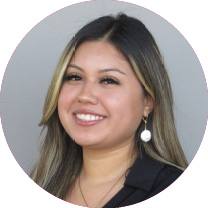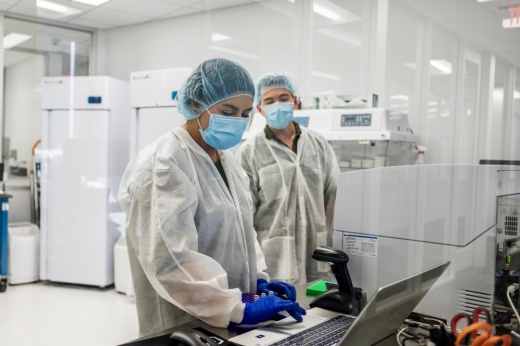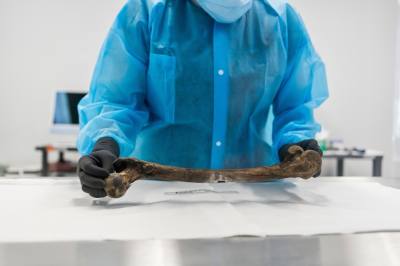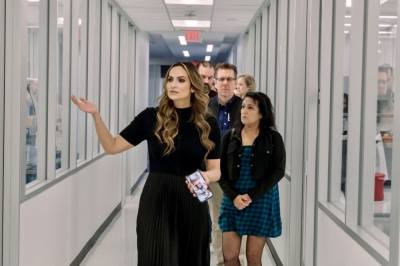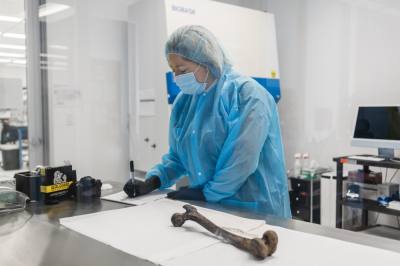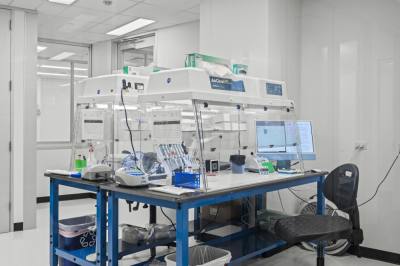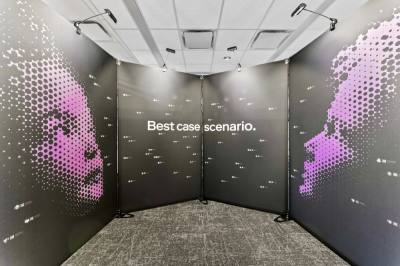“We are hoping to build tools that implement the latest genomic technologies, DNA tools and other tools that will help law enforcement be able to quickly get more information from a crime scene and be able to bring more certainty,” Kristen Mittelman said.
In case you missed it
At Othram, forensic professionals help identify human remains and resolve missing persons cases, focusing on cold cases at a local, state and national level.
“Being able to answer the questions not only gives the family the answers to get justice, but it also removes doubt and uncertainty from all of these people that might be under suspicion that didn't do something, and it finally allows them to have a normal life,” Kristen Mittelman said.
Although Kristen and David Mittelman were previously in the medical field and did not expect to be involved in the forensic science industry, the couple was inspired to bring the resource to the community based on their own experiences.
“Most of us here have been affected by crime, whether it's someone we know very closely, someone in our family or ourselves here. From that, we realized how big this problem is and how many people go without justice and how it affects their families,” Kristen Mittelman said.
Kristen and David Mittelman attended Baylor College of Medicine, she said, and David Mittelman was part of the first Human Genome Project, an international scientific effort to sequence human DNA.
“Many of us here work with the National Institute of Standards and Technology to build the standards that the FDA uses today to run tests,” she said.
With a team built of genomic scientists, forensic scientists, researchers and law enforcement, Othram builds profiles for previously unidentified crime victims. Genomic scientists study and analyze genetic systems and specialize in building DNA profiles, Kristen Mittelman said.
The impact
With millions of violent crimes identified in the U.S. each year, Kristen Mittelman said although the FBI database system keeps records of convicted violent crime individuals, not every criminal is in the system.
She said the FBI’s database, known as the Combined DNA Index System, or CODIS, is a computer software program that operates databases of DNA profiles from convicted offenders, unsolved crime scene evidence and missing persons.
However, the software program is not effective for cases with DNA barriers. That's where Othram comes in with genomic technology to identify victims and convicted offenders.
Kristen and David Mittelman said the company’s technology allows it to accurately run DNA during the first round of testing. Initially inaccurate DNA testing can effect the accuracy of the evidence, she said.
“To this day, there are about 30% of our cases that we still hold and don't immediately run. And that's because we're not certain that we can bring an answer,” Kristen Mittelman said.
Developed by Othram, the company uses Forensic-Grade Genome Sequencing to overcome previously impenetrable forensic DNA barriers and close unsolved cases.
Using this process, Othram is able to identify DNA in greater depth, allowing it to overcome barriers such as DNA that has been contaminated or tampered with during the crime or over the course of time.
“This technology allows you to identify the perpetrator the first time they commit a crime, rather than wait for that second, third, fourth or 12th victim. And that's huge because now we’ve prevented so many people from being the next victim and made the world safer for all of us,” Kristen Mittelman said.
Recent missing persons cases solved and victims identified
Listed are recent missing persons cases solved and victims identified with Othram's DNA testing and assistance. Cases solved by Othram can be found on the company’s website.
Mary Catherine Edwards
A former 31-year-old school teacher’s murderer and rapist was identified and convicted.
- Location: Beaumont
- Crime occurred: 1995
- Case solved: March 20, 2024
A homicide victim was identified after 37 years.
- Location: Conroe
- Body found: August 1986
- Identified: 2023
A 1982 homicide victim was identified.
- Location: Houston
- Body found: 1982
- Identified: 2022
A 14-year-old was identified after four decades.
- Location: Huntsville
- Body found: 1980
- Identified: 2021
A drowning victim was identified after more than 50 years as a Jane Doe.
- Location: Pecos
- Body found: 1966
- Identified: 2021
Kristen Mittelman said Othram is now able to solve about five cases a day, and it has solved a total of over 1,000 cases since it was founded.
“Oftentimes when we identify the perpetrator, it links to 12 other crimes, 10 other crimes, five other crimes, and that's not an exaggeration. And so solving that one case helps all 12 cases at once,” she said.
Statistically, Kristen Mittelman said according to the FBI, there are 300,000 unsolved homicides in the U.S. alone and 14,000 unidentified victims.
With 1.2 million violent crimes identified in the U.S. per year, Othram provides advanced technology to help reduce the issue, she said.
“I think we can live in a world where there are no more cold cases. That's a thing of the past and people don't have to wait 30 and 40 years to find out what happened to their loved one,” Kristen Mittelman said.
Anyone interested in helping Othram's mission can join the Facebook group DNASolves Advocates, a group that focuses on promoting and funding DNA testing to solve cold cases.
- 2829 Technology Forest Blvd., Ste. 100, The Woodlands
- www.othram.com


